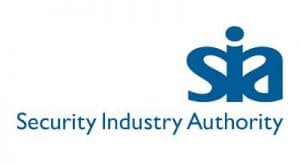The Covid-19 pandemic changed the way that millions of Britons worked – and the way that countless businesses operated. From a security perspective, one of the most important consequences was that many offices either closed entirely due to security in the workplace or were occupied by only a skeleton crew while the majority of staff worked from home.
Since an empty office is a much more attractive target for thieves and vandals, this created a host of new challenges. So too did the increasing frequency of lone-working; typically a senior manager ‘holding the fort’ or some other team-member visiting the office to take deliveries and provide a presence at reception. Such lone-working always presents added safety risks.
A new priority therefore had to be given to protecting empty premises and construction sites during the pandemic. In March 2020, the security magazine IFSEC Global wrote: “police forces across the UK are having to carry out extra night patrols … as burglars target shops, pubs and other commercial premises during the coronavirus lockdown.”
In our own experience in Greater Manchester, we saw sharply increasing demand for Office security services, and a clear upturn in enquiries about physical security measures such as intruder alarms, CCTV and access control systems. More recently, however, as lockdown constraints eased, we have found that organisations are having to contend with a new range of security concerns.
Home-working has remained a popular trend, sometimes for reasons of cost, flexibility or employee preference. One consequence of that is that lone-working in the office (or other sites and buildings) remains common, as does the presence of much smaller teams, more thinly spread across the premises.
Lone workers are obviously more vulnerable to attack, and having fewer staff on site means that more parts of a building may be unoccupied and liable to break-ins. Business owners should therefore consider how site security measures can be optimised, and a good way to begin that process is to seek expert professional advice.
Hiring trained security guard staff on-site is undoubtedly the most effective option. Security operatives will act as an immediate visible deterrent to opportunistic criminals. Professional staff will also be ready to patrol the site and examine existing security measures, to identify potential weaknesses, and to suggest options for improvement.
Another positive step is to provide security awareness training for staff. This will help to keep them safe and alert to potential risks – e.g. of theft, vandalism or assault. Training can deliver quick wins – e.g. reducing risks by emphasising the importance of keeping valuables (including easily portable IT and office equipment) out of sight. When valuables and personal effects are left visible, close to windows and doors, that creates an obvious opportunity for thieves.
Over time, more staff may return to offices, shops and factories. That will create a good opportunity to revaluate existing operations, the use of space and assets, and all associated security protocols. As staff re-assemble, it’s also a good time to refresh security awareness training and to promote any new learning or initiatives that are aimed to keeping staff and resources safe.
Issues to consider include:
• Staff responsibilities
• Key-holding and access to premises
• Shift patterns
• Visitor policies including sign-in and identification
• Storage and the movement of assets
• Vehicle security
• Emergency response procedures
Similarly, this can also be an opportune time to review digital security. Many cyber criminals used the pandemic to launch phishing attacks themed around Covid safety measures, personal protective equipment and associated products. Their strategies will change as new issues and new working patterns emerge. A return to work affords an obvious opportunity to refresh IT security measures and training, and perhaps to introduce additional safeguards.
Reported rates of Covid infection rise and fall and it’s not easy to predict how things will change in the future. For the moment, it seems that business is returning to something like normal so as activity ramps back up, now is the right time for businesses to be considering how their security needs could grow in the coming months and years. That might mean planning the introduction of new CCTV, security lighting and remote monitoring systems, improved access controls or seeking advice on enlisting the support of dedicated security staff on site.
In many respects, the time to plan better security and fire safety measures is not when the next emergency arises; it’s in the more routine periods, when managers have the opportunity to seek expert guidance, proposals and quotations, and thus, to make better-considered, better-informed plans.
For advice about security services or training, please call us on 0800 035 6607 or visit our Contact page.



